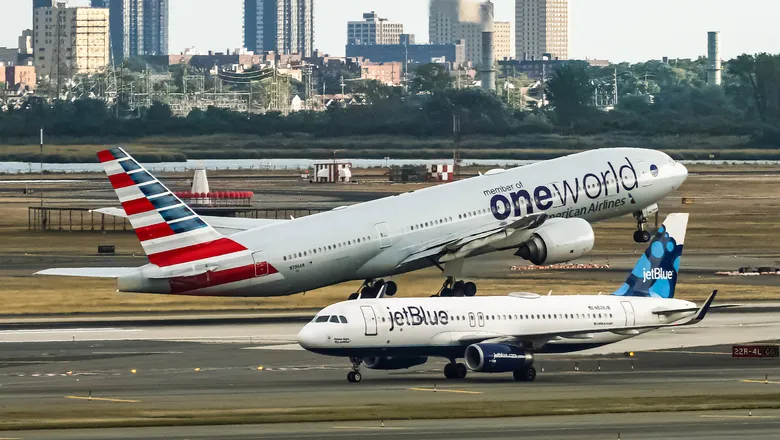Already a subscriber? Make sure to log into your account before viewing this content. You can access your account by hitting the “login” button on the top right corner. Still unable to see the content after signing in? Make sure your card on file is up-to-date.
The Biden administration has proposed a rule banning airlines from charging parents extra fees to sit next to their children on flights.
What’s the deal: The new proposed rule by the Biden administration would stop airlines from charging extra fees for parents to sit next to their children during flights. This regulation would require airlines to seat children aged 13 and under next to their parents within 48 hours of ticket purchase. If adjacent seats are unavailable, the airline must offer a refund.

Do airlines already have this policy?: Airlines for America, a prominent lobbying group representing many US airlines, responded to the proposed rule by emphasizing that airlines already strive to accommodate families traveling together, particularly those with children. They noted that each airline has its own policies, but all work to ensure families sit together. According to Airlines for America, their member carriers do not charge a family seating fee. Airlines such as Alaska, American, JetBlue, and Frontier already provide seating for children under 13 next to an accompanying adult at no extra cost.
What the US is saying: In a statement, Transportation Secretary Pete Buttigieg said, “Families don’t need any additional stresses or costs when flying on top of how demanding it can be to be a parent flying with your kids. The idea that parents ought to be seated next to their own children on a flight is common sense and also seems like something that ought to be standard practice. As somebody who has personally experienced flying with toddlers, as my husband and I have taken our two-year-old twins on trips many times, families don’t need any additional stresses or costs when flying.
So when could this become law? The proposed rule must first undergo a public comment period. During this time, airlines and the general public can provide feedback. Based on these comments, adjustments may be made to the rule. Once revised, the rule will need to be finalized and enacted. Officials say it will likely become a rule next year.







